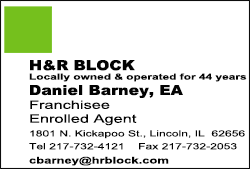|
 The agreement, brokered by the United States, Russia, Ukraine and
the European Union in Geneva on Thursday offered the best hope to
date of defusing a stand-off in Ukraine that has dragged East-West
relations to their lowest level since the Cold War. The agreement, brokered by the United States, Russia, Ukraine and
the European Union in Geneva on Thursday offered the best hope to
date of defusing a stand-off in Ukraine that has dragged East-West
relations to their lowest level since the Cold War.
Ukraine said it was preparing a law to give the separatists amnesty
although the drive to root them out would continue.
The agreement requires all illegal armed groups to disarm and end
occupations of public buildings, streets and squares but with the
separatists staying put in the east and Ukrainian nationalist
protesters showing no sign of leaving their — unarmed — camps in the
capital's Maidan Square, it was not clear which side would be
willing to move first.
Enacting the agreement on the ground though will be difficult,
because of the deep mistrust between the pro-Russian groups and the
Western-backed government in Kiev, which this week flared into
violent clashes that killed several people.
Russian President Vladimir Putin overturned decades of post-Cold War
diplomacy last month by declaring Russia had a right to intervene in
neighboring countries and by annexing the Black Sea peninsula of
Crimea.
The move followed the overthrow of Ukraine's pro-Moscow president
Viktor Yanukovich, after months of street protests prompted by his
rejection of a trade deal with the EU.

The fact any deal was reached at all in Geneva came as a surprise,
and it was not clear what had happened behind the scenes to persuade
the Kremlin, which had shown little sign of compromise, to join
calls on the militias to disarm. It rejects Ukrainian and Western
accusations of orchestrating the gunmen.
In Slaviansk, a city that has become a flashpoint in the crisis
after men with Kalashnikovs took control last weekend, leaders of
the pro-Russian groups met inside one of the seized buildings to
decide how to respond to the Geneva agreement.
Anatoly, one of the armed separatists who have taken over police
headquarters, said: "We are not leaving the building, regardless of
what statements are made, because we know what is the real situation
in the country and we will not leave until our commander tells us
to."
Two Ukrainian military aircraft circled Slaviansk several times on
Friday. In front of the mayor's office, men armed with automatic
rifles peered over sandbags which had been piled higher overnight.
Separatists remained in control of the city's main streets,
searching cars at checkpoints around the city.
NO SURRENDER
The self-declared leader of all the region's separatists said he did
not consider his men to be bound by the agreement.
Russian Foreign Minister Sergei Lavrov "did not sign anything for
us, he signed on behalf of the Russian Federation," Denis Pushilin,
head of the self-declared Donetsk People's Republic, told
journalists in Donetsk, the regional capital.
First, he said, the prime minister and acting president who took
power in February should quit their offices, as they took them over
"illegally".
But Alexei, another separatist in Slaviansk acknowledged that the
Geneva talks had changed the situation: "It turns out Vova doesn't
love us as much as we thought." said Alexei, using a diminutive term
for Putin, who is viewed by many of the separatist militias as their
champion and protector.

In the capital, Kiev, people on the Maidan, the local name given to
Independence Square which was the centre of protests that eventually
toppled Yanukovich, said the barricades would not come down until
after the May 25 presidential election.
"People will not leave the Maidan. The people gave their word to
stay until the presidential elections so that nobody will be able to
rig the result. Then after the election we'll go of our own accord,"
said 56-year-old Viktor Palamaryuk from the western town of
Chernivtsi.
"Nobody will take down our tents and barricades," said 34-year-old
Volodymyr Shevchenko from the southern Kherson region. "If the
authorities try to do that by force, thousands and thousands of
people will come on to the Maidan and stop them."
Right Sector, a far-right nationalist group whose violent street
tactics in support of the Maidan helped bring down Yanukovich in
February, saw the Geneva accord as being directed only at
pro-Russian separatists in the east.
"We don't have any illegal weapons and so the call to disarm will
not apply to us," said Right Sector spokesman Artem Skoropadsky.
"We, the vanguard of the Ukrainian revolution, should not be
compared to outright gangsters."
Prime Minister Arseny Yatseniuk told parliament he was not overly
optimistic about the agreement but said Russia had been "forced" to
call on the "illegal armed groups" to surrender.
[to top of second column] |

ORDER RESTORED?
President Barack Obama said the meeting in Geneva between Russia,
Ukraine and Western powers was promising but that the United States
and its allies were prepared to impose more sanctions on Russia if
the situation fails to improve.
"There is the possibility, the prospect, that diplomacy may
de-escalate the situation," Obama told reporters.
"The question now becomes, will in fact they use the influence
they've exerted in a disruptive way to restore some order so that
Ukrainians can carry out an election and move forward with the
decentralization reforms that they've proposed," he said at the
White House. Ukraine's government promises to devolve power to
regions and protect people's rights, notably in the east, to use the
Russian language in public life. But it rejects calls for a federal
structure which it says could lead to permanent Russian interference
in the east and eventually break up the country.
U.S. Secretary of State John Kerry said in Geneva that if by the end
of the weekend there were no signs that pro-Russian groups were
pulling back, there would be costs for Moscow, a reference to
further EU and U.S. sanctions.
The Moscow-led South Stream undersea gas pipeline project is still
under way and Russia has been discussing its implementation with
Europe, Russian Energy Minister Alexander Novak said on Friday.
He also said that cooperation between Russian companies and
international oil and gas majors was continuing despite Western
sanctions against Moscow over Ukraine.
The Geneva deal contained no mention of Russia's annexation of
Crimea peninsula.
Asked about the absence of any language in the document condemning
Russia's intervention in Crimea, Western diplomats said they
remained firm that Russian had acted illegally, and denied they had
dropped the issue.

The fact the agreement did not address Crimea could put pressure on
Ukraine's interim government from its own supporters who are adamant
that everything should be done to bring the peninsula back under
Kiev's control.
The United States and European Union have so far imposed visa bans
and asset freezes on a small number of Russians, a response that
Moscow has openly mocked. However, the Western states say they are
now contemplating measures that could hurt Russia's economy more
broadly.
But some EU nations at least are reluctant to press ahead with more
sanctions, fearing that could provoke Russia further or end up
hurting their own economies.
NOT LEAVING
Pro-Russian militants control buildings in about 10 towns in eastern
Ukraine after launching their operation on April 6.
In Luhansk, a militia member called Andrei said his group had no
plans to withdraw: "Everything on the ground is the same as it was
yesterday and the day before and the day before that. We're not
leaving."
Seeking to reassure its eastern allies, NATO announced it was
sending warships to the Baltic, while the United States approved
more non-lethal military support for Ukraine.
Speaking on Russian television before the Geneva agreement Putin
accused the authorities in Kiev of plunging the country into an
"abyss".
Kiev fears he will use any violence as a pretext to launch an
invasion of eastern Ukraine by Russian forces.
"Instead of realizing that there is something wrong with the
Ukrainian government and attempting dialogue, they made more threats
of force ... This is another very grave crime by Kiev's current
leaders," Putin said in his annual televised question-and-answer
session with the Russian public.

(Additional reporting by Stephanie Nebehay, Tom Miles, Arshad
Mohammed and Catherine Koppel in Geneva, and Alexei Anishchuk in
Moscow; writing by Christian Lowe and Richard Balmforth; editing by
Anna Willard and Alastair Macdonald)
[© 2014 Thomson Reuters. All rights
reserved.] Copyright 2014 Reuters. All rights reserved. This material may not be published,
broadcast, rewritten or redistributed. |